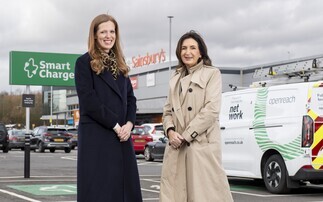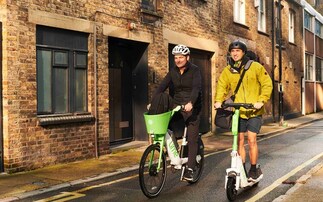Trewin Restorick asks if disruption caused by the Olympics could give firms a chance to develop greener travel policies
It is easier to get people to think about changing their behaviour when their normal routines are disrupted. Such a disruption is heading London's way during the Olympic Games. It's an opportunity that...
To continue reading this article...
Join BusinessGreen
In just a few clicks you can start your free BusinessGreen Lite membership for 12 months, providing you access to:
- Three complimentary articles per month covering the latest real-time news, analysis, and opinion from Europe’s leading source of information on the Green economy and business
- Receive important and breaking news stories via our daily news alert
- Our weekly newsletter with the best of the week’s green business news and analysis






